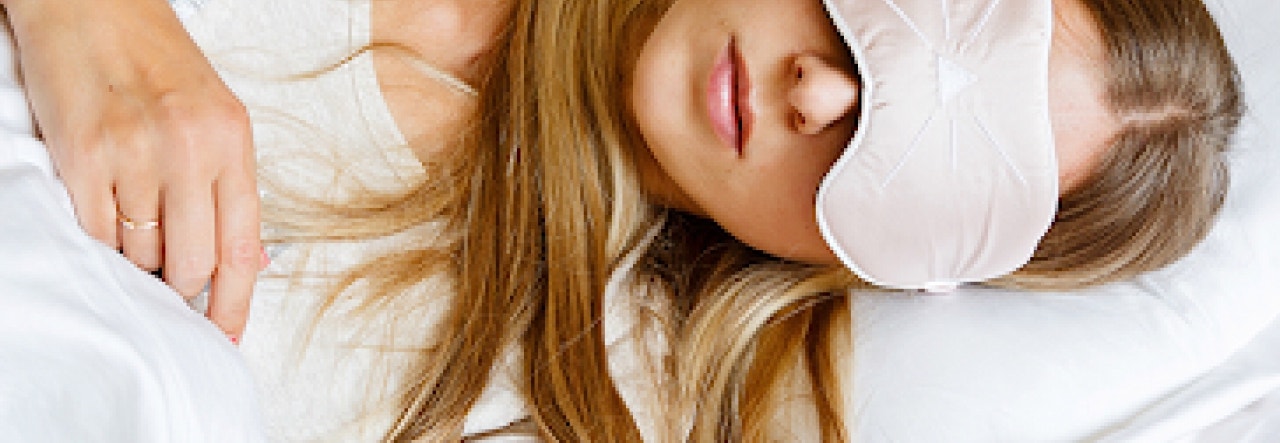

Sleep issues are extremely commonplace in America, with roughly 35% of adults claiming they fail to get the recommended amount of sleep, the CDC reports.
In an effort to get better rest at night, many adults turn to sleep aids—both over-the-counter and prescription—to calm them down and induce sleep.
The CDC reports that more than 8% of American adults use a sleep aid multiple times a week. From dietary supplements like melatonin to doctor-approved medications, many people find it challenging to know which sleep aid will best help them sleep.
However, turning to sleep aids might not be the best option for everyone.
In fact, there are risks to using sleep aids long term. Researchers at Harvard Medical School confirming sleep aids can lead to a problematic and cyclical dependency, as well as causing daytime sleepiness and difficulty concentrating.
Because so many people have trouble sleeping, the market for nighttime products that help you unwind and claim to induce sleep are growing in popularity. Everything from plush sleep masks to lavender pillow spray are advertised as soothing and somniferous, but are they actually effective? More importantly, are they even good for you?
Since today is April Fool’s Day, we want to debunk some of the common sleep products that, while comforting, may not be the answer to your insomnia.
In other words, don’t get fooled by the efficacy (and the price tag!) of these allegedly sleep-inducing products:
Weighted blankets
Using a weighted blanket is essentially like swaddling yourself in a cozy hug. Most weighted blankets weigh about 10 pounds or more, providing deep-pressure stimulation that can have a calming effect.
At this point, unbiased scientific research on the benefits of weighted blankets is mixed and rather limited, according to The New York Times. As such, they’re more of a comfort accessory than a sleep aid.
Sound machines
Sound machines are a popular choice for people wanting a non-drug sleep aid, with 5% of Amercians saying they fall asleep with some sort of “sound conditioner,” according to a poll by the National Sleep Foundation.
While some people prefer natural sounds, such as rainwater or ocean waves, others prefer sounds they can’t attach an image to, like white noise. However, researchers warn against developing a reliance on sound machines, which can become a “crutch” to falling asleep.
According to Michael Grandner, director of the Sleep and Health Research Program at the University of Arizona, the optimal sound for sleeping might be none. “Biologically, you don’t need this [sound] to sleep,” he says, “and if you use it every night, you can get so used to it that you can’t sleep without it.”
Like other sleep products, using sound machines could become a problem if you get anxious if it’s not there. If this happens, you may want to consider if the ritual is actually good for your health.
Lavender essential oils
Lavender essential oil is one of the most studied in terms of its relaxation effects. Many people find the scent of lavender to be quite calming, which is why lavender products (like bath salts, candles, lotions, pillow sprays, and diffusers) are marketed to the stressed-out and sleep-challenged.
Lavender essential oils, if organic and pure, have been shown to promote sleep and fight insomnia in several studies. However, all those other lavender products on the market vary in their efficacy and might be best relied upon as part of a calming bedtime routine.
Before you order the latest sleep aid or gadget, take a moment to think about your sleep environment. Maybe there’s something about your bedroom that you can easily change to promote better sleep—like your mattress!
Choosing an organic mattress that’s made with non-toxic materials, like Naturepedic’s EOS line of adult mattresses, is a key component of a healthy night of deep sleep. Check out our EOS mattresses here and learn about our unique layer swap program.
 BABY
BABY  KIDS
KIDS  ADULT
ADULT  LEARN
LEARN  STORES
STORES 